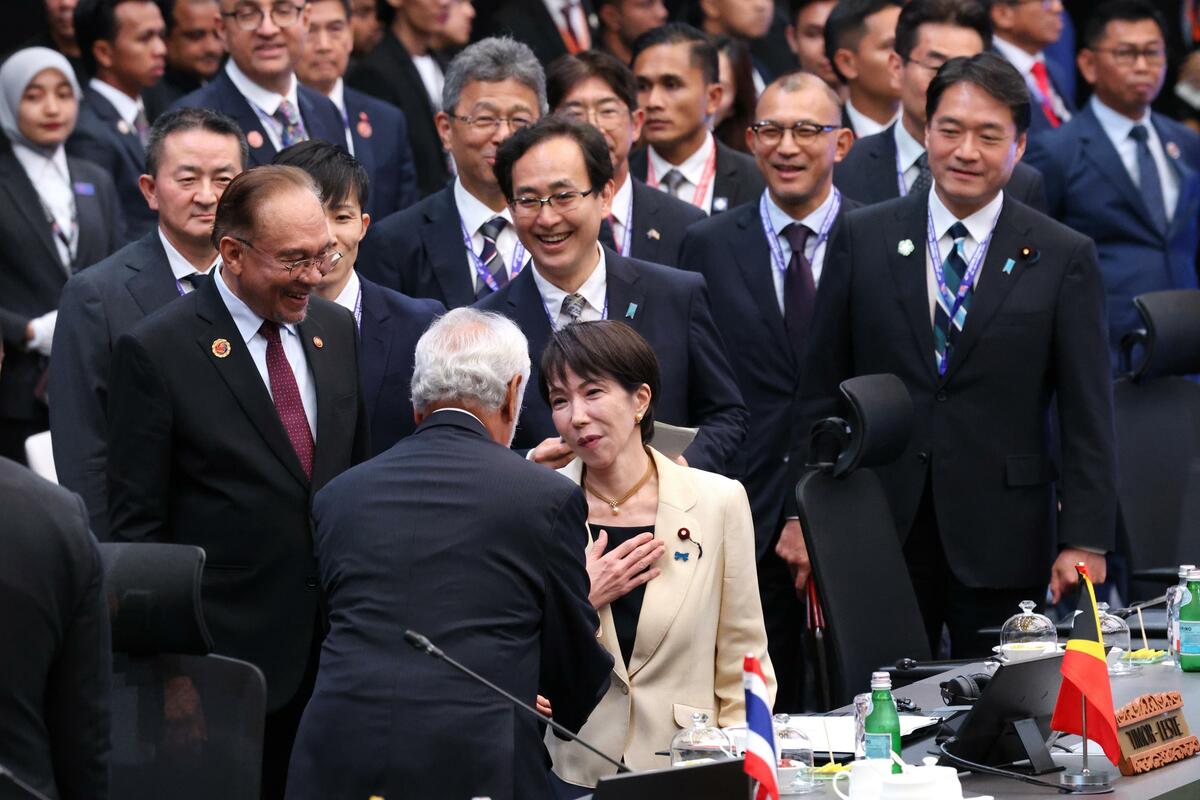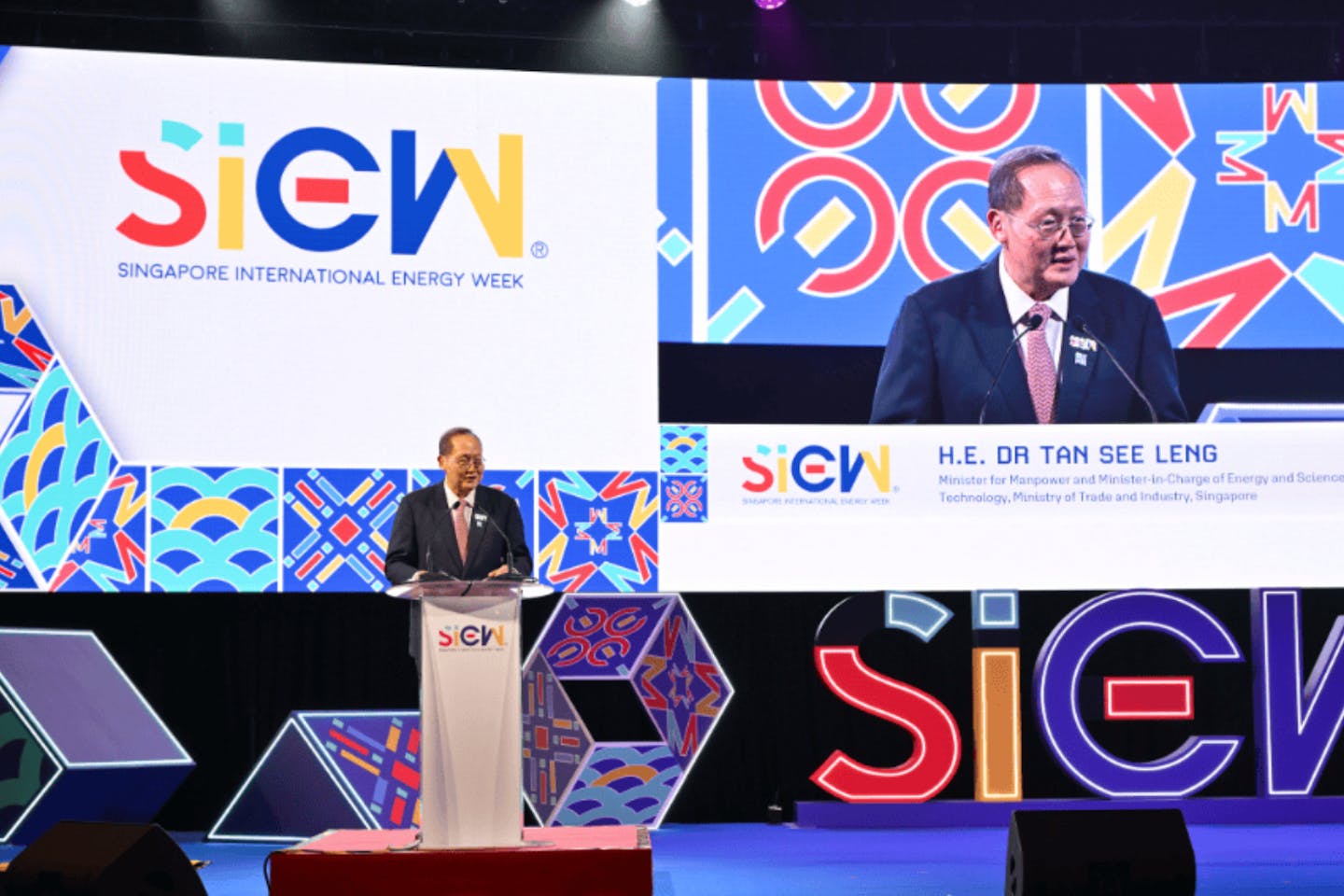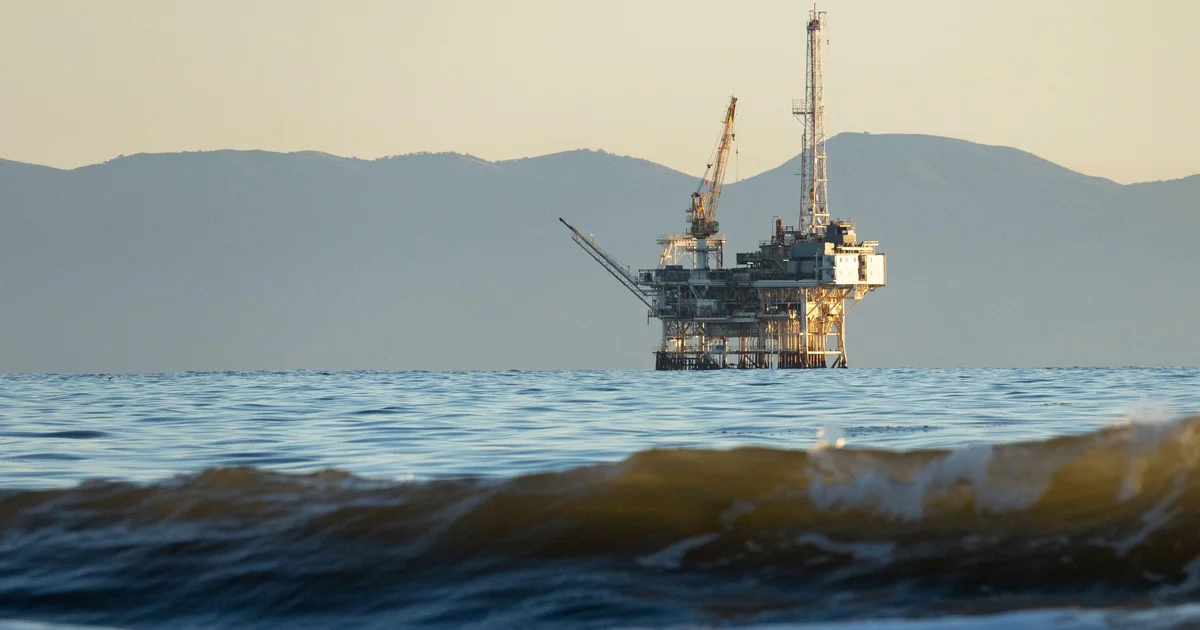Copyright kyodonews

KUALA LUMPUR - The way Japan's new prime minister, Sanae Takaichi, engaged with ASEAN leaders during her busy weekend trip to Malaysia may have left a positive impression, as China is believed to be closely watching the diplomacy of the country's first female leader, known for her hawkish views. Takaichi, who succeeded Shigeru Ishiba last week, took her first step onto the international diplomatic stage Sunday in Kuala Lumpur, where she held talks with leaders of the Association of Southeast Asian Nations and met separately with Malaysian Prime Minister Anwar Ibrahim, the grouping's current chair. At the outset of the Japan-ASEAN talks, Anwar thanked Takaichi, who was due to return to Japan later that same day, saying, "I know you are busy welcoming President Trump tomorrow, but Japan, of course, is important to ASEAN, and we are appreciative of this." To meet U.S. President Donald Trump in Tokyo on Tuesday, Takaichi attended only the first day of the three-day events hosted by ASEAN, skipping other meetings such as the East Asia Summit, before hastily flying back to Japan. The EAS comprises ASEAN members and major dialogue partners, including the United States and China. Deputy Chief Cabinet Secretary Masanao Ozaki said at a press briefing Sunday that Takaichi's trip, made amid her extremely tight schedule between her inauguration and Trump's visit to Japan, reflected her emphasis on ASEAN. Ozaki said the prime minister's communication skills, including the range of topics she raised in conversations with other leaders, impressed many ASEAN counterparts, adding that she had taken a significant first step on the global stage. International relations experts also reacted positively to Takaichi's debut overseas trip, as Kei Koga, an associate professor at Singapore's Nanyang Technological University, said, "She was sociable even despite meeting ASEAN leaders for the first time." Koga said Takaichi met the ASEAN leaders when the security environment for the Southeast Asian countries is characterized by "both traditional and non-traditional challenges, such as the South China Sea issue and online fraud." "For this reason, Japan and ASEAN have strengthened cooperation over the years," the Japanese expert said. He added that it was significant that Japan and ASEAN leaders reaffirmed their support for a "free and open Indo-Pacific" and the ASEAN Outlook on the Indo-Pacific, an initiative aimed at maintaining peace, freedom and prosperity in the region. While Japan has built relations of trust with ASEAN through years of assistance, Southeast Asian countries are delicately balancing their ties with Japan and with China, which is locked in rivalry with the United States and wielding growing economic influence in the region. Takaichi, who pledged last Friday to raise Japan's defense budget to 2 percent of gross domestic product by next March to address growing security challenges from China and North Korea, did not mention China during the meetings she attended in Malaysia that were open to the press. Reacting to the pledge by Takaichi, a vocal advocate of revising her country's pacifist postwar Constitution, China questioned Japan's commitment to its exclusively defense-oriented policy. China has lodged a protest with Japan after several members of the ruling Liberal Democratic Party, including Takaichi before she became prime minister, visited the war-linked Yasukuni Shrine in Tokyo, which China and South Korea regard as a symbol of Japan's past militarism. The 64-year-old conservative is believed to have abstained this year in an apparent bid to avoid diplomatic friction. Yumi Iijima, research fellow at the Japan Institute of International Affairs, said, "China is wary of the Takaichi administration's direction and has taken a wait-and-see stance toward her foreign policy for now." "We'll see if she can stabilize various diplomatic relations, including with China, by learning from former Prime Minister Shinzo Abe's engagement skills," she said, in reference to the late premier. China remains cautious about Takaichi's policy toward Taiwan, which Beijing regards as a renegade province to be reunified with the mainland, by force if necessary. Takaichi visited the self-ruled island in April as head of a delegation of lawmakers and held talks with President Lai Ching-te. In Kuala Lumpur, Takaichi did not hold bilateral talks with Chinese Premier Li Qiang, but did meet with the leaders of the Philippines, Malaysia and Australia. However, at the end of her stay in Malaysia, she expressed hope for a future meeting with Chinese President Xi Jinping, referring to the Asia-Pacific Economic Cooperation forum summit starting Friday in South Korea, which both leaders are scheduled to attend. Amid China's increasing assertiveness in the region, including the Taiwan Strait, Japan and the United States have seen their alliance as the cornerstone of peace, security and stability. During a phone conversation with Trump on Saturday, Takaichi told him that Japan is "an indispensable partner for the United States, both in its strategy toward China and in its Indo-Pacific strategy. Takaichi, who has no experience as foreign minister, will continue to face diplomatic tests this week as she seeks to balance relations with the United States and China while maintaining Japan's trusted ties with other Asian countries.



